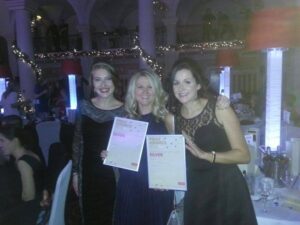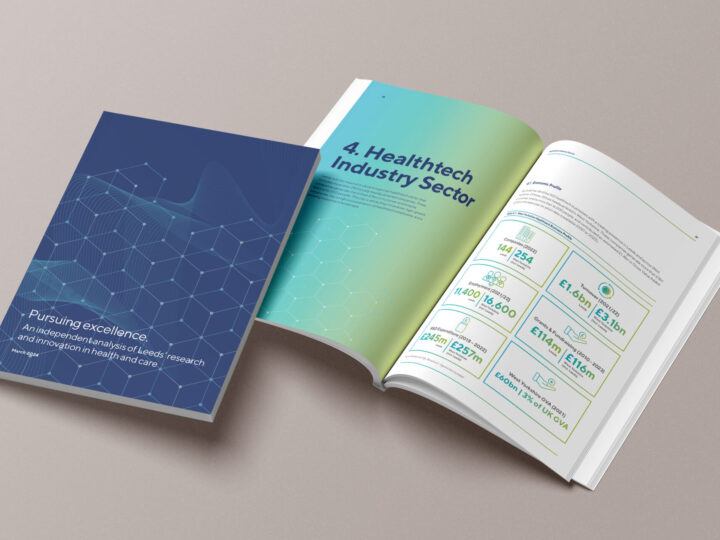Last night, I was asked to speak at a CIPR Yorkshire & Lincolnshire workshop on ‘How to Win a CIPR PRide Award‘. The PRide Awards are our regional industry awards at which Engage Comms won silver in the Outstanding Small Consultancy and Business & Corporate Communications categories last year, despite entering after just one year in business. I am also a former winner of the Outstanding Young Communicator category and my co-Founding Director Jo and I have been part of award winning teams over the past 10 years.
Award entry writing for our clients (like the multi award winning Prashad Indian vegetarian restaurant and Synergize Ltd, which has just been shortlisted in the Yorkshire Post’s Environment Awards 2014), is also one of our services. Winning awards is not just about delivering outstanding work in your field. How you communicate the impact of and story behind that work is what makes a winning entry and it is worth investing in the expertise of an professional content creator when entering.
What are the business benefits of entering awards?
Entering awards can seem like an unnecessary distraction and expense that is not business critical but, if you are selective about what to enter (think about what awards/categories will be most beneficial to your profile and always go for quality, not quantity) and invest the time and resource in getting the entry right, there are obvious long term benefits to being an award winning business, including:
- Increased credibility, profile and reputation amongst your customers, stakeholders and employees
- Attracting the best talent – everyone wants to work for an award winning business
- Team morale
The actual process of developing award entries is also beneficial because it forces you to reflect on your work and evaluate its impact. In fact, thinking about how you can deliver award winning work/services/products that achieve hard-hitting business objectives from the outset is what will make your business grow and succeed.
What makes a winning award entry?
Any credible awards scheme will have rigorous entry criteria that only rewards outstanding work with a demonstrable and meaningful impact. A winning entry will focus largely on the outcomes rather than the outputs of the work carried out. However, entering awards is like applying for a job – your entry has to stand out to the judges amongst all the others so it does need some creative stand out. Being award winning is about going the extra mile to do something truly innovative that your competitors are not.
But innovative work that has had a big impact doesn’t necessarily win awards. Like any piece of content, your award entry needs to be engaging and memorable to capture the judges’ imagination. It needs to go further than a list of facts and figures. It needs to tells a story with a beginning, middle and end. With a tight word limit, the technical jargon and background bumf needs to be left out to make space for the bits that are really meet the judges’ criteria.
Where do you start with writing an award entry?
The first step is to scrutinise the entry criteria and be really honest with yourself about whether the work you want to put forward is worthy of winning. Be selective about what awards and categories you enter and only go for ones you are confident that you are at the leading edge in.
Before putting pen to paper, it’s important to gather all the evidence and data that demonstrates the impact of the work carried out. Start by clearly articulating what the objectives were and then mapping the information you’ve gathered against them before fleshing out the entry into a compelling story.
Taking time out of day-to-day business to write award entries and getting input and feedback from a range of stakeholders involved is also important to ensure that you have chance to really reflect on the work from an external perspective as the judges would. It’s always worth including third party testimonials, even if the entry criteria doesn’t insist on it as what other people say about you is always more powerful than what you say about yourself. Don’t forget that you’re not just competing with yourself – think about who you are likely to be up against and how you can make your entry stand out from theirs. Looking at case studies of previous winners is really useful. It is always clear when an award entry has been rushed and trying to save time will only mean that entering is a waste of money.
How do you get a return on investment from entering awards?
Besides taking the time to research, reflect on and write an entry that is worthy of winning, you also need to think about how you will make the most of (hopefully) being shortlisted and (fingers crossed!) winning. If you get shortlisted, make sure that you shout about it and get involved in the buzz around the awards via Twitter and other media via which it’s being talked about. After all, supporting the marketing efforts of the organisers will give the awards a higher profile and make your involvement in them more valuable to your business. Attending the awards and using it as a chance to properly celebrate your success is a key part of the process but can be costly and possibly frowned upon by the people you’re trying to impress if it’s too much of a lavish expense so be selective about who is representing the business (ie those that delivered the work and not just the ‘big wigs’) and, more importantly, how they behave on the night. Whilst it’s an opportunity to have fun and celebrate, awards ceremonies are not the best time for a big drinking session!
After the ceremony, you need to be geared up for getting the message out to your employees, customers, clients and stakeholders if you do win. And, whether you win or not, it’s important to look back at and learn from all the winning campaigns on the night. It’s the best way to check out the competition and you can start planning straight away for how you are going to come back next year bigger and better.
Need help with writing an award entry? Get in touch with us!





